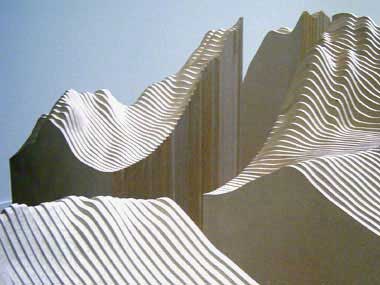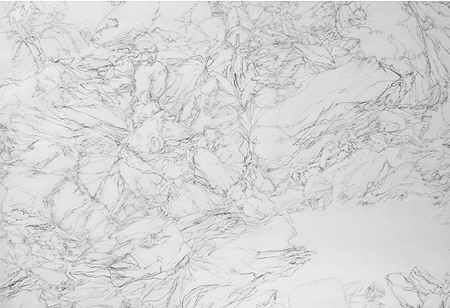Posted by Steve Durbin on February 22nd, 2009

Maya Lin from Systematic Landscapes (photo: arcspace)
I recently came across an amazing argument for increased arts funding, especially in this economic crisis. Actually, the thrust of the argument—one I believe in—is not so amazing, though it may often be neglected. But some of the numbers cited in support truly are. The claim, by Michele and Robert Root-Bernstein, is that arts education is an important factor in developing creativity and innovation, traits that seem more essential than ever at a time when the status quo has broken down. The examples leading off their article are interesting, but not in themselves compelling to me. The astounding part (which also struck the Artful Manager, where I first learned of this) is the following: more… »
Posted by Birgit Zipser on January 16th, 2009
Alcmaeon of Croton, a natural philosopher in 450 BC, concluded, based on his animal dissections, that the brain, not the heart, is the central organ of sensation and thought. However, a couple of centuries later, someone then articulated the idea that the seat of mental function resides in the ventricles of the brain – cavities filled with cerebrospinal fluid. Galen, the famous physician at the Roman Imperial Court in 170 BC, popularized this idea further in his extensive writings that were eagerly read throughout the dark Middle Ages.
The great Renaissance artist Leonardo da Vinci still held on to this ancient belief that the senso commune (sense of community), phantasy and imagination originated in the anterior ventricle; that the middle ventricle served cognition; and that memory was contained in the posterior ventricle.
 more… »
more… »
Posted by Steve Durbin on June 10th, 2008
There seems to be an uptick in concern about the separation of art and science and in efforts to join them in some fashion. Though I must say it’s very difficult to assess this sort of cultural trend, and in pessimistic moments I sometimes wonder if anyone knows or cares much about either. At any rate, I’ve come across a recent book that brings together contributions by artists and scientists of various stripes: Findings on Ice, first in a series envisioned by the PARS Foundation of Amsterdam. It doesn’t seem to have made much of a splash so far; I’ve found no reviews or mentions online, except for publishers’ blurbs.

Michaela Frühwirth, Obstruction_1, detail
more… »


